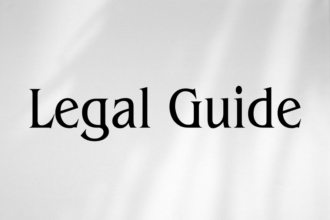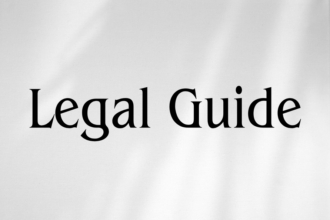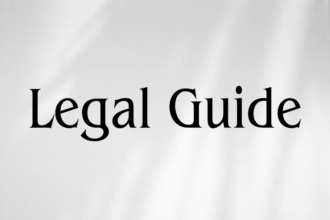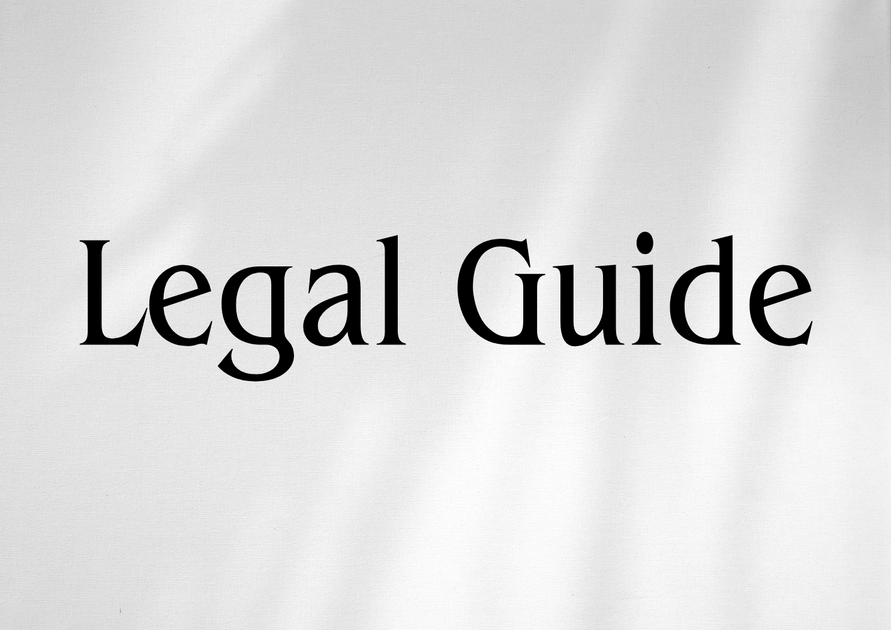Introduction to Mediation and Settlement in UAE Business Disputes
The United Arab Emirates continues to cement its position as a regional and global hub for trade, investment, and innovation. As commercial activities expand and cross-border partnerships proliferate, the strategic management of business disputes becomes increasingly vital for organizational continuity and reputation. The UAE government’s unwavering commitment to fostering a stable, business-friendly environment is reflected in its continuous reform of judicial processes and the growing emphasis on alternative dispute resolution (ADR). In particular, mediation is being positioned as a cornerstone of modern dispute settlement, blending efficiency, confidentiality, and legal certainty. Recent regulatory updates—including Federal Law No. 6 of 2021 regarding Mediation in Civil and Commercial Disputes—underscore the evolving landscape and the critical importance of understanding mediation’s role within the UAE legal framework. This in-depth guide provides executives, legal managers, and business leaders with expert insights into the legal foundations, practical applications, and compliance imperatives surrounding mediation and settlement of business disputes in the UAE as of 2025. Whether you seek to avoid protracted litigation or harness mediation’s strategic benefits, this article aims to equip you with the knowledge and actionable guidance needed for robust dispute management in the Emirates.
Table of Contents
- UAE Legal Framework for Business Dispute Resolution
- Detailed Legal Framework for Mediation in the UAE
- Recent Updates: Federal Law No. 6 of 2021 and Ongoing Reforms
- Mediation Process and Practical Considerations
- Settlement Agreements and Enforceability under UAE Law
- Case Studies and Hypothetical Scenarios
- Risks of Non-Compliance and Effective Strategies
- Strategic Best Practices for UAE Businesses
- Conclusion: The Future of Dispute Resolution in the UAE
UAE Legal Framework for Business Dispute Resolution
Traditional Litigation vs. Alternative Dispute Resolution
Historically, litigation within the UAE Civil Courts has served as the standard mechanism for resolving contractual and commercial disputes. Adjudication through the judiciary offers statutory guarantees, but it is often associated with extended timelines, public hearings, higher costs, and risks to business confidentiality. Recognizing the need for efficient alternatives, the UAE government has progressively empowered ADR avenues—particularly arbitration and mediation.
Key Laws and Authorities
The regulatory landscape for business dispute resolution is shaped by several key statutes and authorities:
- Civil Procedure Law (Federal Law No. 11 of 1992, as amended)
- Federal Law No. 6 of 2021 on Mediation in Civil and Commercial Disputes
- UAE Arbitration Law (Federal Law No. 6 of 2018)
- Specialized ADR centers, including the DIFC-LCIA, ADGM Arbitration Centre, and governmental Mediation Centres
As the UAE transitions from a litigation-centric to ADR-inclusive schema, greater attention is paid to mediation’s structured processes and enforceability mechanisms.
Detailed Legal Framework for Mediation in the UAE
Federal Law No. 6 of 2021: Key Provisions
Federal Law No. 6 of 2021, which entered into force in April 2021, forms the backbone of the current mediation regime. The law is applicable in both civil and commercial contexts and distinguishes between judicial and non-judicial mediation.
| Aspect | Judicial Mediation | Non-Judicial Mediation |
|---|---|---|
| Initiation | Ordered or approved by the competent court | Mutual agreement between disputing parties |
| Supervision | Managed and overseen by judicial authorities | Managed through certified mediators or mediation centers |
| Appointment of Mediator | By court decision | Parties’ choice, subject to UAE Ministry of Justice accreditation |
| Enforceability | Settlement agreements have direct executory power | Enforceable after court ratification |
Essential Features of Mediation Law
- Voluntary Participation: Parties can mutually opt for mediation at any stage of the dispute or by court referral.
- Impartiality: Mediators, who must be accredited by the UAE Ministry of Justice or relevant authority, must maintain neutrality and confidentiality.
- Confidential Proceedings: Discussions, documents, and exchanges during mediation are inadmissible as evidence in future litigation or arbitration, supporting business privacy.
- Enforceability: Settlements reached are binding following ratification, ensuring certainty and minimizing post-mediation disputes.
- Competence Requirements: Mediators require registration with the Ministry of Justice, ensuring professional oversight and standards.
This comprehensive regulatory approach provides businesses robust means to resolve disputes amicably, swiftly, and with minimal reputational risk.
Official References
Recent Updates: Federal Law No. 6 of 2021 and Ongoing Reforms
What’s New: Key Legal Innovations
- Direct Court Enforcement: Judicial mediation agreements are now directly enforceable, eliminating the need for additional litigation to enforce a settlement.
- Expedited Timelines: Mediation proceedings are subject to specified deadlines, ensuring efficiency and business certainty.
- Training and Accreditation: Establishment of a formal national registry for professional mediators, subject to oversight and continued training by the Ministry of Justice.
- Scope Expansion: Mediation is now expressly available for a broader spectrum of civil and commercial disputes, barring criminal, personal status, or public order cases.
These updates reflect the UAE’s alignment with international best practices in ADR while maintaining emphasis on local commercial realities.
Comparison: Pre-2021 vs. Current Legal Framework
| Issue | Pre-2021 | Post-2021 (Federal Law No. 6 of 2021) |
|---|---|---|
| Mediation Recognition | No uniform legal recognition; ad-hoc | Comprehensive law; clear procedures and enforceability |
| Mediator Accreditation | Unregulated; no formal oversight | Accreditation and regulation by Ministry of Justice |
| Enforceability of Settlements | Settlements required separate litigation to enforce | Directly executable or enforceable upon court ratification |
| Scope | Limited to certain sectors, often informal | Broad civil and commercial scope, with defined exceptions |
Mediation Process and Practical Considerations
The Standard UAE Mediation Procedure
- Initiation: Either by mutual agreement, or via court recommendation during ongoing litigation.
- Appointment: Selection and agreement upon a mediator, or court appointment from the Ministry’s approved registry.
- Preliminary Conference: Clarification of issues, confirmation of procedural rules, and signing of mediation agreements.
- Confidential Hearing Sessions: Structured negotiation under the mediator’s guidance.
- Drafting the Settlement Agreement: Formalizing mutually agreed terms in writing.
- Judicial Ratification (if non-judicial mediation): Submitting the agreement to the competent court for final ratification and enforceability.
Practical Insights for Businesses
- Early Mediation Benefits: Early intervention often reduces legal expenses, speeds up resolution, and allows businesses to maintain relationships and commercial interests.
- Control and Flexibility: Mediation grants parties significant control over outcomes, as opposed to rigid litigation or arbitration processes.
- Protection of Reputation: Confidential nature minimizes undesirable publicity that can attach to court cases.
- Precedent Avoidance: Settlement through mediation does not establish adverse legal precedents, reducing strategic risks for businesses in repeated or high-profile disputes.
| Step | Description |
|---|---|
| 1. Initiation | Voluntary or via court |
| 2. Mediator Appointment | Qualified, MOJ-accredited mediator |
| 3. Hearings and Negotiation | Private, structured sessions |
| 4. Agreement Drafting | Written settlement, subject to parties’ approval |
| 5. Court Ratification (if needed) | Court review for enforceability |
Visuals: A flowchart outlining the above steps would be highly effective for client education and engagement.
Settlement Agreements and Enforceability under UAE Law
Legal Nature and Binding Effect
Settlement agreements reached through mediation are binding contracts under UAE Civil Code principles and become directly enforceable either by operation of law (for judicial mediation) or upon court ratification (for non-judicial mediation). The courts play a supervisory role, ensuring that settlements meet legal standards and do not violate public policy.
Enforcement Procedure: A Checklist
| Item | Requirement |
|---|---|
| Legal Form | Written, signed by authorized parties |
| Jurisdiction | Submitted before competent UAE court, or applicable DIFC/ADGM court |
| Compliance | Terms must not breach UAE public order or mandatory law |
| Ratification | Judicial review for non-judicial mediation outcomes |
| Execution | Enforceable by judicial writ, treated akin to court judgment |
Risks and Challenges
- Vagueness of settlement terms can hinder enforcement. Drafting should be precise, leaving no ambiguities.
- Failure to ratify (for non-judicial mediation) may result in unenforceable agreements.
- Unregulated mediators (outside official lists) pose legal risks—always ensure mediator accreditation.
Case Studies and Hypothetical Scenarios
Case Study 1: Commercial Agency Termination Dispute
A UAE-based manufacturer terminated a longstanding exclusive agency. The agent filed a claim alleging wrongful termination and damages, with initial litigation threatened. After judicial mediation under the new law, the parties negotiated a phased wind-down, compensation package, and confidentiality clause—ratified by the court and enforced without resorting to full litigation.
Case Study 2: Intra-Shareholder Conflict
Two joint venture partners in a Dubai free zone company reached an impasse over profit distribution. Utilizing a non-judicial mediation center, an accredited mediator facilitated a settlement on restructuring shareholdings. The court ratified the agreement, and the business continued with renewed stability.
Hypothetical: Cross-Border Construction Claim
An international contractor and Emirati developer entered early mediation after disputes concerning project delays. The mediator, certified by the MOJ, helped secure a staged payment plan and performance milestones, saving months of likely contentious litigation and cross-jurisdictional enforcement uncertainties.
Risks of Non-Compliance and Effective Strategies
Common Pitfalls
- Engaging non-accredited mediators risks legal invalidity of settlements.
- Unclear or illegal settlement terms may prompt judicial refusal to ratify.
- Filing settlements in the wrong jurisdiction or neglecting required court procedures may delay enforceability.
Businesses failing to integrate mediation and settlement protocols within internal compliance strategies may expose themselves to protracted disputes, adverse publicity, and unnecessary expense.
Compliance Strategies and Recommendations
- Incorporate mediation clauses into major commercial contracts, specifying mediation centers and governing law.
- Engage only MOJ-accredited mediators or official centers.
- Train legal and HR staff regularly on updated mediation procedures and documentation standards.
- Establish internal dispute escalation protocols that prioritize early mediation.
- During mediation, involve experienced counsel to ensure settlement terms are clear, enforceable, and aligned with UAE public policy.
Strategic Best Practices for UAE Businesses
- Audit all existing contracts to include updated ADR and mediation clauses referencing Federal Law No. 6 of 2021.
- Maintain a panel of pre-vetted, MOJ-accredited mediators suitable for core business sectors.
- Monitor ongoing legal developments and updates from the UAE Ministry of Justice and local ADR centers.
- Educate key staff in negotiation and mediation skills, particularly for contracts with significant commercial or cross-border significance.
- Document all mediation sessions comprehensively, ensuring a clear record for any future enforcement or compliance validation.
Conclusion: The Future of Dispute Resolution in the UAE
The UAE’s legal reforms have strategically positioned mediation at the forefront of business dispute settlement, providing organizations with time- and cost-effective alternatives to litigation while preserving commercial relationships and protecting confidentiality. The recent enhancements under Federal Law No. 6 of 2021, including structured enforcement procedures and formal mediator accreditation, instill greater certainty and credibility in the mediation process for domestic and international business actors. As the UAE continues to update its regulatory environment in line with global best practices through 2025 and beyond, it is incumbent on businesses to proactively integrate robust mediation strategies, contractual safeguards, and compliance training into their operations. By doing so, companies not only mitigate legal risks but also contribute to the UAE’s vision of a dynamic, business-friendly legal ecosystem—one in which disputes are not just resolved efficiently, but managed as opportunities for collaboration and sustained growth.




